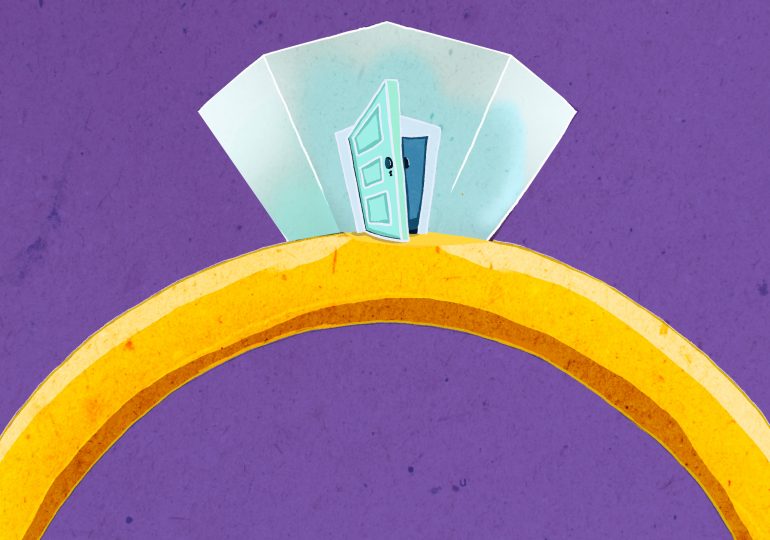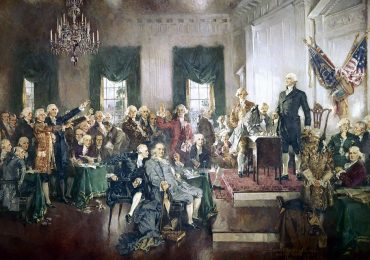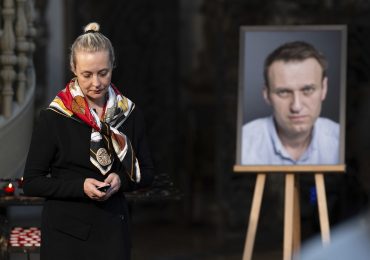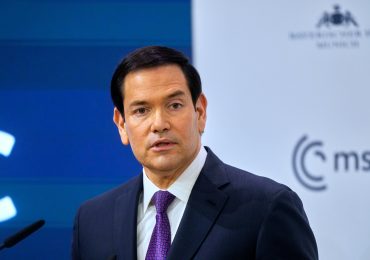Back in 2016, on one of the bleached-out days that fuse winter with early spring, my husband Stewart and I sat on an oversized couch in front of Evelyn, our couple’s therapist. Therapy had been my idea—or more accurately, my ultimatum. We were several years into our open marriage journey, and what had initially felt like a short-term experiment was evolving into something else, a graft that was becoming part of our marital flesh. What’s more, rules we had initially established to protect ourselves from the inherent uncertainty of non-monogamy were proving increasingly difficult to follow. (Our cardinal rule—”no falling in love”—became particularly sticky.) If we planned to commit to non-monogamy long term, I insisted, we would need help. Stewart had balked at “paying someone to pretend to care about our problems,” as he put it. So I threw down the gauntlet: agree to therapy, or we would close the marriage.
[time-brightcove not-tgx=”true”]
At our third session, Stewart surprised me by speaking before I’d had a chance to present my own agenda for the hour. The issue in short was this: When I’d laid my phone on the counter before it faded to black, Stewart had seen my text to the man I was dating at the time. The message read something like this: “I wish I could escape and come over right now.”
Seeing the hurt in Stewart’s eyes, I was steeped in shame. My voice faltered, coming out in a whisper: “I didn’t mean I wanted to escape from you. It’s more like wanting to escape from my role. As a wife. As a mother.”
The language of marriage and the language of captivity have a long history of overlap, but that language has often been reserved for men. Referring to a wife as “the old ball and chain” is part of the lexicon. Bachelor parties are held in the spirit of giving a groom “one last night of freedom.” When I was growing up, however, little girls were supposed to dream of their weddings as the climax of their lives. Marriage was the assumed goal, and motherhood was viewed as the fruition of a woman’s success. How could I want to free myself from a life I was lucky to have? It was the first time I’d ever voiced this yearning, which felt so taboo. I loved my husband and my children. I didn’t want to leave them behind. But clearly some part of me did.
In those days, I was doing quite a bit of therapy. I moved from individual to couple’s therapy and back again, desperately trying to figure myself out. It was my “solo” therapist, Mitchell, who helped me understand the connection between opening my marriage and my yearning to escape. What I was really looking for was a way to find a self that existed outside the constructs of “wife” and “mother”—escaping the restriction of my roles, yes, but also seeking something more. Seeking sexual exploration and the excitement that goes with it. Seeking the experience of desiring and feeling desirable again.
Seeking my own version of “freedom.”
Over time, I came to realize the central fallacy of my original approach to finding freedom through sex. What I needed to do was to set myself free. For years, I marched from one “relationship” to the next, thinking that a variety of partners was the point, my ticket to the freedom I desired. But it turns out, they were simply distracting me from the core that was being fortified within myself. Every time I became intimate with someone new, I saw myself with fresh eyes. Every time a relationship ended, I spent time nurturing the innermost me that had been hurt. And so, over the years, my sense of self blossomed because of the space that open marriage had created.
Read More: The Surprising Political Evolution of American Polyamory
The idea that people need space—space to breathe, space to move, space to grow—makes sense to most of us in the abstract. We are like all living things in this way. We know that for a houseplant to flourish, it requires a pot large enough to give its roots room to develop. We might feel outrage at the practice of wild animals held captive in zoos. And yet, the phrase “I need space” is synonymous with break-ups, with endings rather than beginnings. How would we react if our beloved partner were to utter those three words? Why can’t we see the need for spaciousness in love as well?
In his Letters to a Young Poet, a work that is oft quoted at wedding ceremonies and then too-quickly forgotten, Rainer Maria Rilke describes this connection between freedom and love so aptly. “The point of marriage is not to…[tear] down all boundaries; on the contrary, a good marriage is one in which each partner appoints the other to be the guardian of his solitude,” Rilke explains. “A merging of two people is an impossibility, and where it seems to exist, it is a hemming-in, a mutual consent that robs one party or both parties of their fullest freedom and development.”
Was opening our marriage the only way Stewart and I could guard one another’s solitude, the only way I could find the space I needed for self-discovery? Of course not. Let me be clear on this: Non-monogamy is certainly not everyone’s path. But it was my path. It’s a path I’ve stayed on for 15 years and counting. And my experience confirms the words of Audre Lorde: “The erotic is the nurturer… of all our deepest knowledge.”
At the end of that couple’s therapy session, Evelyn told us the following: “In some ways, open marriage is a joint adventure. But at the same time, your outside relationships are individual explorations. And there are risks. You don’t want to head off into the wilderness without knowing how to find your way home.”
Evelyn turned out to be right, but not in the way I believed at the time. What I didn’t know then is that the terrain I explored was not sex, per se, but myself. The risk was not that either my husband or I would find passion—or love—with someone else, but that by giving up the freedom to explore, I’d condemn myself to a life of stagnation and resentment. I would be suffocated by my own sense of safety. I would wake up one morning and find myself tucked inside the Tupperware with the leftover chicken and carrot sticks I packed for everyone else’s lunch, and there would be no way out, no entry point for air.
And the wilderness I had wandered into was different than what I expected, too. Far from being a frightening place, an inhospitable wasteland filled with danger—threats to my marriage, to my family, my security—I now see the landscape of my adventures in non-monogamy as a place of great beauty, splendid in its lack of societal constructs, a place that is purely my own. I carry this wilderness and a solid sense of home—my own True North—within me. There is plenty of space for both. And if I remember this, I will never be lost.
Leave a comment








